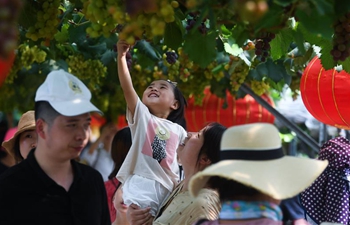CHICAGO, Aug. 11 (Xinhua) -- Compared with European Americans, Asian-American firstborns feel the additional burden of being cultural brokers and having to take care of their immigrant parents and young siblings at the same time, a study of the University of Michigan (UM) shows.
Kaidi Wu, a UM doctoral candidate in social psychology, explored how Asian-American firstborns aged 18 to 25 viewed sibling relationships, their birth order and family relations.
For firstborn Asian Americans, the sibling caregiving and cultural brokering responsibility created dual pressure. In Asian cultures, the oldest son traditionally has greater obligations in the family, but more firstborn females are taking on these roles - even when there are young male siblings in the household, the study showed.
Asian-American families may rely more heavily on the firstborn than their counterparts for various reasons. But the increased family obligations may have an adverse impact on the older Asian-American siblings, such as greater depression and anxiety, the study cautioned.
Asian-American firstborns also felt motivated to become role models for their younger siblings by having high-achievement levels, confidence and behavior, according to the study.
Nevertheless, having siblings can be beneficial to Asian-American firstborns when firstborns struggle with their parents' more traditional cultural perspectives and have their younger siblings to relate to. This finding contrasts with previous research in which older siblings closely resemble parents' stance on Asian values and differ from later-borns who acculturate more easily into the mainstream American culture.
Other positive points of siblingship include: feeling supported, appreciated and comforted during interactions with their siblings. Some participants disclosed that siblings alleviate pressure from parents that might otherwise cause conflict.
The study has been published in the Journal of Family Issues.













